For the first time since before the supply chain chaos of the pandemic, the IGD brought together key movers and shakers today for a major conference on the future of the food industry.
And if the size of the challenges facing the sector is reflected in the calibre of the speakers on stage and those in the audience (even at £500 a ticket), it’s clear this is an industry facing issues even bigger than those experienced during that seemingly unparalleled modern global disaster.
In the words of Sainsbury’s CEO and IGD president Simon Roberts, the industry is at a “crossroads”, facing massive geopolitical, health and economic threats.
But can it agree on which direction to go, especially given the minefield of explosive obstacles in the way of whichever path it chooses? And anyway, even if food bosses can agree, will the government prioritise the sector enough to give it the backing and leadership it needs?
A climate warning
In case anyone still doubts the scale of the challenges, a report published today by IGD and accountancy giant EY – timed to coincide with the Future of Food conference – estimates that staying on the current production path could see the industry rack up £2.6bn of extra costs by 2050, driven by the mounting threats of global warming and climate change.
IGD says it hopes the figures will act as a wake-up call for the industry to tackle what it calls “net zero inaction”. The modelling shows a raft of reasons to fear commodity shortages are on course to increase production costs by nearly 15% (a statistic that wouldn’t be out of place at the COP summit itself, let alone IGD).
Indeed many of the issues discussed today chimed with the raft of news stories, analysis and features we have been publishing as part of The Grocer’s first-ever Green Week.
IGD CEO Sarah Bradbury told the conference the sector faced a “pivotal moment”, where “bold collaboration, strategic foresight and purposeful action” were needed as never before.
“This conference is more than a gathering,” she said. “It’s a real opportunity to find workable solutions for the future of food. It reflects the agenda and the urgency that we’ve got across all parts of the system.”
At times today delegates would have been forgiven for reaching for their hard hats rather than the healthy lunchtime snacks, as speaker after speaker reeled off the list of problems the industry is facing.
“The decisions made today across businesses, government, and consumers will shape the UK food system’s resilience and success for the future,” said Bradbury.
“Climate change is already reshaping the UK food system, with record-breaking heat, persistent flooding and water stress disrupting yields and driving up costs. The challenges facing the sector are unprecedented and they will intensify in the years ahead.”
Cautious optimism
IGD’s role in the government’s food strategy – which was published in July, just before Keir Starmer replaced most of the Defra ministers leading it – has recently come under scrutiny, following a row over its position as the strategy’s secretariat.
Powerful sources within the industry suggest the IGD has become too much of a campaigning force for contentious policies such as mandatory heath targets and urging supermarkets to sell less meat. It is, they say, too closely aligned with former health tsar Henry Dimbleby, who was among the keynote speakers today, along with chief medical officer Chris Whitty.
For his part, Whitty charmed the audience, revealing the stark link between poverty, obesity and life expectancy, as well as urging the food industry to take its own action over and above the existing “achingly middle-class” solutions on offer.
“Society and government need to take action on this point,” he said. “But it’s far better if the food and drink industry does this now – they’re in a better position to do so and to get change in place.”
Also talking in detail about what the industry can do was Wrap CEO Catherine David. She told the conference that, while significant progress has been made, further urgent action is still needed. In particular, she described household waste as “the big remaining challenge”, adding it was “currently a nut which remains uncracked”.
“I’m cautiously optimistic that we can make these changes happen,” David told The Grocer. “The right people are in the room, but businesses and policymakers need to work together on this, with real, habitual collaboration and no excuses. It’s not a case of who moves first – we need to all be part of that movement.”
Certainly, the stark statistics on display have ensured nobody can accuse this gathering of being simply about industry bigwigs patting themselves on the back.
Bradbury and co deserve enormous credit for their role in setting out the need for the industry to step up to the plate on the big environmental and health challenges. Now it’s up to the rest of us to make it happen.







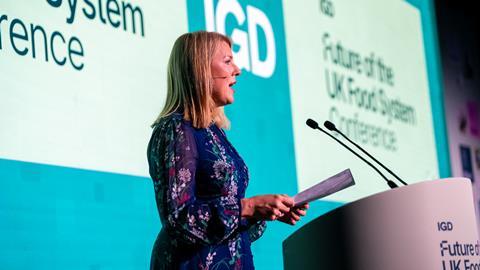
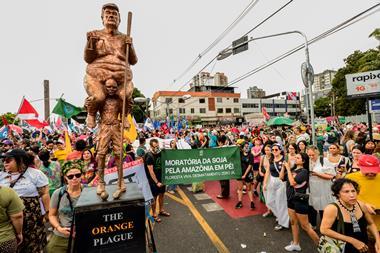

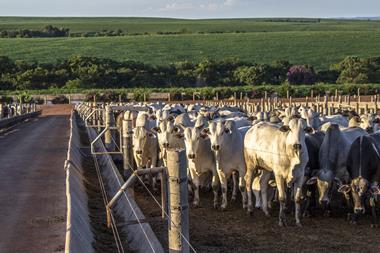
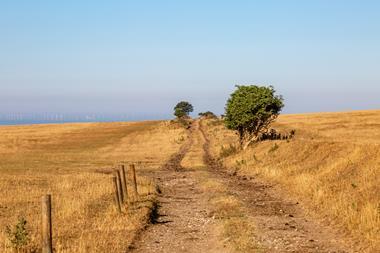
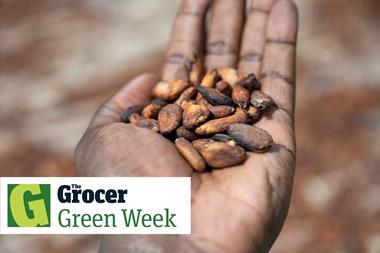







No comments yet